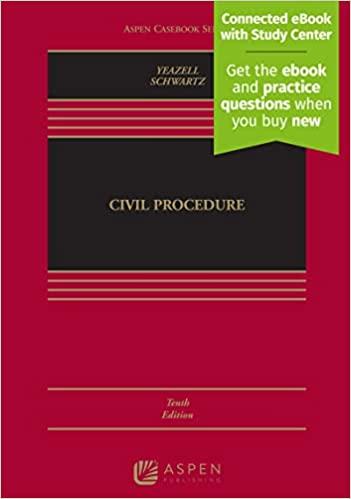Question
Makdessi v Cavendish Square Holdings BV; ParkingEye Limited v Beavis [2015] UKSC 67 Contract law - Consumer protection - Unfair contract terms Facts The first
Makdessi v Cavendish Square Holdings BV; ParkingEye Limited v Beavis [2015] UKSC 67
Contract law - Consumer protection - Unfair contract terms
Facts
The first case,Makdessi,involved the sale of a controlling interest in a marketing company where the defendant agreed to sell his stake to the claimant. The defendant agreed to pay $147 million in instalments and that he would not compete with his old business and if he did, he would be owed no more instalments and the claimant would be able to purchase the remaining shares. The defendant breached the non-compete and the claimant sought a judgment that he was not entitled to further payments and that he should be able to purchase the shares back as agreed. The trial judge found that this term could be enforced and the Court of Appeal reversed the decision, rejecting the use of the clauses. The claimant appealed this decision on the basis that the clauses were not penal and should apply to commercial transactions, particularly where the parties had equal bargaining power.
In the second case,ParkingEye, the defendant parked his vehicle in a shopping centre which was privately owned and managed by the claimant. Notices were clearly displayed across the car park and stated that the car park was free for the first two hours but that 85 would be charged for those who wished to stay longer. The claimant brought proceedings after the defendant drove out of the car park after almost three hours and refused to pay the 85 fee as stated by the signs. The trial judge found for the claimant and the Court of Appeal rejected an appeal from the defendant which had been raised on the basis that the clause on the signs in the car park was penal and therefore was unfair. The defendant appealed again to the Supreme Court.
Issue
The court conjoined the two cases and was required to establish the nature of the clauses in the cases. Specifically, this required a consideration of whether the terms were penal, and therefore unenforceable or, whether the rule should be updated, abolished or restricted. It was argued by the parties in both cases that the clauses imposed onerous restrictions on the parties, which was not necessarily a result of the breach of contract and therefore this was an important decision for the Supreme Court.
Held
Firstly, it was held by the Supreme Court that the rule which made a penal clause unenforceable was an important and long-standing principle of English law and would therefore not be restricted or abolished in the current case. However, the Supreme Court gave a landmark judgment which amended the test to determine whether a clause was enforceable or not under the circumstances. This required assessing whether the obligations in question were primary or secondary considerations, with the innocent party being able to enforce a penal clause on the basis of a secondary obligation. Applied to the facts, the Supreme Court found that the clauses inMakdessiwere not penalties and were therefore enforceable by the claimant. InParkingEye, their Lordships found that the charge for overstaying was not a penalty and again, could be enforced.
- Is there a legitimate interest protected by the penalty? Cite it.
- Is the amount exorbitant in comparison to other similar contracts/breaches of this type? Reason out.
- Is the protection of the interest proportionate? Justify your answer.
Step by Step Solution
There are 3 Steps involved in it
Step: 1

Get Instant Access to Expert-Tailored Solutions
See step-by-step solutions with expert insights and AI powered tools for academic success
Step: 2

Step: 3

Ace Your Homework with AI
Get the answers you need in no time with our AI-driven, step-by-step assistance
Get Started


